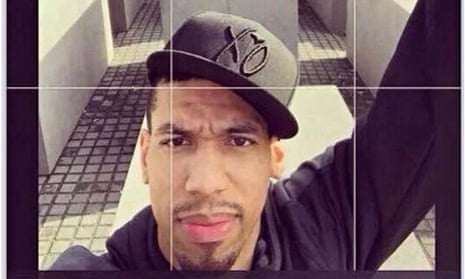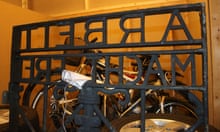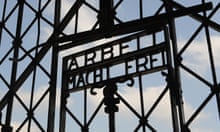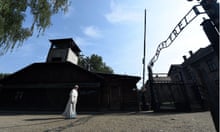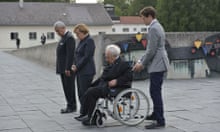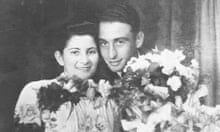I’m a travel writer, and I’m Jewish. That means that, whether I’m writing about them or not, visits to Jewish sites – including museums, synagogues, and restaurants – are often an important part of any trip I take. But there’s one kind of Jewish site in which I have absolutely no interest in visiting: a concentration camp.
I know many people for whom visiting a concentration camp is a serious act or even a triumphant one. A few years ago, a viral video of a camp survivor and his grandchildren dancing around at Auschwitz to the tune of “I Will Survive” had me crying at my desk. For people whose families perished at these places, the visits are mournful and a way to pay tribute all the ones they’ve lost. And events like last month’s excavation of the gas chambers below the camp of Sobibor show that former concentration camps need to be preserved as evidence of what happened there.
But even when the concentration camps and other Holocaust-related sites themselves are presented with respect and dignity, not every visitor acts accordingly. The American basketball star Danny Green’s “#Holocaust” selfie he posted on Wednesday from Berlin’s Memorial to the Murdered Jews of Europe is hardly the most offensive: I’ve seen far too many photos of people smiling, waving and throwing gang signs in front of the “Arbeit Macht Frei” sign at Auschwitz. A friend came back from a visit to Dachau, telling me about the tourists who had taken cheesy selfies in front of prisoner uniforms. And earlier this year, the American college student Brenna Mitchell’s self-described “Auschwitz selfie” went viral and launched many conversations about what is and isn’t appropriate taste at such serious historical sites.
For some people, a visit to a place like Auschwitz isn’t about paying respect or learning about history – it’s simply yet another “must-see attraction” they’re checking off in their guidebook, a thing to be Instagrammed, like the Mona Lisa or the Leaning Tower of Pisa. The Holocaust is so visceral and wrenching to me that I’d rather opt out of visiting a camp altogether than run the risk of having to interact with the people who will treat it like an attraction at Disneyland.
Thanks to work by historians, scholars, artists and activists, there are thousands of ways that I can (and do) learn about the Shoah. But I don’t need to see where people were murdered in order to grasp its gravity – and I especially don’t need to see those killing fields when they’re full of tourists stopping in on their way to the beer garden.
In a short story by the late writer Leonard Michaels, the main character – a Jewish mathematics professor named Nachman – attends a conference in Krakow, Poland, where he is assigned a tour guide who tells him that she is taking him to Auschwitz because she’s aware that some of his family members were there. Nachman, however, has another idea. “I don’t want to tour Auschwitz,” he tells the guide. “I would like to see the ghetto, particularly the synagogue.” In other words, he wants to see where they lived, not where they died.
It’s that idea – I want to see where they lived – that drives my personal Jewish tourism. Everyone has their own way of remembering the past, of committing it to memory. Mine is to see the places where Jewish people lived, where they thrived, where they fell in love and baked apple cakes for Rosh Hashanah and held Passover seders and taught their children to read Hebrew. Concentration camps are anathema to that. I’m glad that many have been preserved, so that there will be always be reminders of the horrible atrocities that humans visited on other humans. But I’ll never go there myself.
